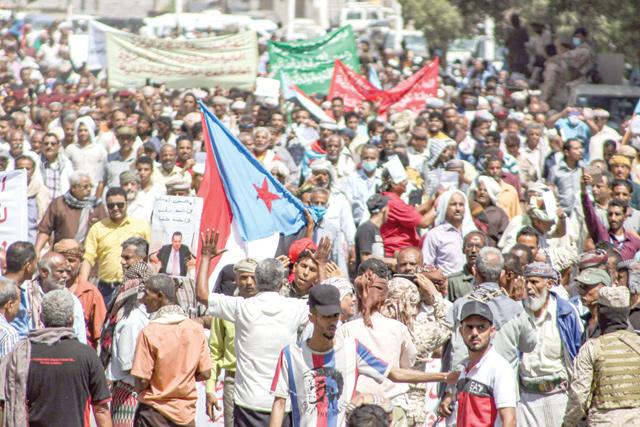You are here
African migrants face rape, torture in Yemen’s Aden — HRW
By AFP - Apr 18,2018 - Last updated at Apr 18,2018
DUBAI, United Arab Emirates — Men, women and children fleeing the Horn of Africa have faced torture and sexual violence in conflict-wracked Yemen at the hands of government officials, Human Rights Watch said on Wednesday.
The watchdog said researchers interviewed eight migrants at a detention facility in the southern city of Aden and Yemeni government officials.
The United Nations refugee agency (UNHCR) published a parallel report on Wednesday corroborating the findings and calling for "unhindered access" to detainees.
Last year, more than 87,000 people arrived in Yemen from the Horn of Africa, according to UNHCR.
Human Rights Watch said migrants who end up in Aden's Buraika detention facility — in use since early 2017 — have faced beatings with steel bars, sexual violence and dire sanitary conditions.
Detainees, notably boys, were raped by guards, according to the report.
"Every night, they would take one to rape them," a former detainee told HRW. "Not all of them. The small ones. The little ones. I know seven boys who were sexually assaulted... You could hear what was happening."
Other detainees said the boys "would come back unable to sit, sometimes crying, and occasionally telling the others what had happened".
At least two male detainees were shot dead, according to witnesses.
An Ethiopian national who managed to escape in 2018 told HRW there were only "two ways" to leave the Buraika detention facility — through smugglers or being "deported into the sea".
In January, more than 150 Ethiopians and Somalis were packed onto an overcrowded vessel in Aden and sent in the direction of Djibouti, according to the UN and the International Organization for Migration.
At least 30 people drowned when the boat capsized, the joint statement said.
"The Yemeni government bears responsibility for the deaths of deported detainees at sea," said Human Rights Watch.
Yemen's interior ministry told HRW in an April 2 letter that it had removed the Buraika facility commander, Colonel Khalid Al Alwani, and would transfer detainees to another facility.
HRW is calling on Yemen's government to bring detention centres in line with UN standards, provide female-only guards for women's quarters, end detentions of children with their families over immigration violations and ensure that detainees are granted the right to make asylum claims or contest deportations.
Yemen's government is based in Aden, having been driven out of Sanaa by Houthi rebels who overran the capital in 2014.
A Saudi-led Arab coalition intervened in March 2015 to try to restore the government to power.
Nearly 10,000 people have since been killed in Yemen's conflict, which has unleashed what the UN has called the world's worst humanitarian crisis.
Related Articles
ADEN, Yemen — Yemen's interior minister on Thursday ordered the "immediate arrest" of an Aden-based colonel, citing allegations of rape agai
DUBAI, United Arab Emirates — Nearly 100,000 migrants fled last year to Yemen, itself gripped by war and impending famine, to escape poverty
ADEN — Hundreds of angry Yemenis stormed the presidential palace in Aden on Tuesday protesting poor living conditions in the war-torn countr












